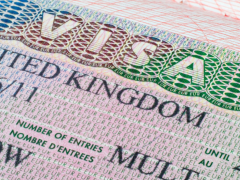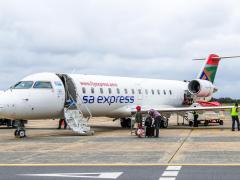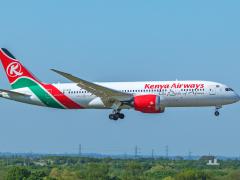TICKETING agents have
welcomed Iata’s new
financial criteria for BSP
ZA as they feel it will give
their businesses a boost,
particularly from smaller
agencies.
Club Travel md, Wally
Gaynor, predicts that many
smaller agents will give
up their Iata licences. “It’s
a no-brainer. Ticketing
through a tried-and-tested
centralised ticketing unit
frees up your financial
guarantee, cuts down
on staff costs – such as
BSP clerks and accounts
staff – and cuts down on
ADMs. There are actually no
negatives.”
Dinesh Naidoo, group
operations director of
Serendipity Worldwide
Group, agrees that there will
be a gradual move towards
ticketing agents. The cost
of additional administrative
manpower to remit weekly
in order to bring down the
financial guarantee will be a
deterrent, he says.
The scary truth, says
Garth Wolff, ceo of eTravel,
is that many small agents
rely on the cash flow
generated by airlines’
money, holding on to ticket
revenue before paying it
over to the airlines at the
end of the month in order
to pay the bills. “Now, they
won’t have the cash to remit
monthly and will be forced
to pay BSP weekly. This, in
turn, will put pressure on
the BSP clerk to ensure
the weekly recons and
submittals are performed
timeously,” he says. “Those
agents who are holding and
using BSP to pay the bills
should realise that it is not
their money. They should
be content with issuing a
guarantee to Iata.”
Colin Mitchley, group
financial director of
BidTravel, adds that
an increase in the Iata
guarantee, which could
come about as a result of
high cash sales, may pose
serious issues for small
agencies. Owners might
even be forced to put up
personal surety, he says.
For new entrants and
SMEs who want to enter
into the market, the
Iata guarantee will be a
stumbling block, says David
Pegg, md of Sure Viva
Travels. “How many people
of colour are on the agency
programme joint council
(APJC)? Does the committee
understand that these new
criteria are a barrier for new
entrants?”
“It comes down to
managing your cash flow
really carefully,” says cfo of
Tourvest Travel Services,
Lidia Folli. Unfortunately,
agents in South Africa tend
to extend credit that they
can’t afford, she adds.
“If you are considering
remitting weekly, you’ll need
to look at how you structure
your operations.”
The alternative
An option for travel agents
who are reluctant to pay the
guarantee is Iata’s Default
Insurance Programme (DIP),
which is expected to be
launched within the next few
weeks. However, this option
has drawbacks, industry
authorities say.
“Even if the agent elects
to participate in the DIP
programme, guarantees
are still required for the
first 12 months, says Colin.
“Then there’s the issue of
who bears the cost of the
DIP. Will agents choose to
absorb it or will it be passed
on to the customer?”
Lidia explains that the
reason agents will need a
guarantee in place for the
first year is that, initially, the
insurance provider will need
to collect sufficient funds to
cover big claims.
The cost for participating
in the DIP programme will
be around R12 per ticket,
says Lidia. The best option
will depend on the financial
position of the agency, she
says. “If they don’t have
sufficient reserves, they
will need to consider the
expense of paying a
charge per ticket through
the DIP.”
New BSP criteria to boost centralised ticketing business
Comments | 0












